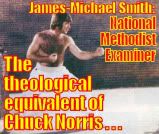In my "Bible for the Rest of Us" class, we spend some time covering various Bible translations, their differing interpretive approaches, translation theory, and study Bibles. If you've taken the course, you've heard me recommend when studying Scripture (as opposed to simply reading for devotional purposes alone) if you are unable to read the original Hebrew or Greek it is best to use three translations: a "thought for thought" translation, a "word for word" translation" and one that sits somewhere in the middle. This gives you the best access to the ways that various translators handle the passage you're studying. It's also important to use good study Bibles for serious study of Scripture. There are so many lame study Bibles on the market that it's important to be discerning and to know what to look for in Bible you're going to spend between $30-$80 for!
My personal recommendation for translations to use is the following:
"Word for word" - ESV or NASB
"Thought for thought" - NLT
Base translation - TNIV/NIV or HCSB
Those provide a great range for getting a feel for the original words of the Inspired text. In addition, however, it is important to have access to a good study Bible. The purpose of a study Bible is to supplement the texts of Scripture with notes, maps, charts and other background information that help explain the texts in their original contexts and historical settings. Without such knowledge, we run the risk of reading things into the Biblical passages that the authors (and the Original Author Himself!) did not intend.
My recommendations for good study Bibles in a Base translation are:
The Archaeology Study Bible - NIV
Life Application Study Bible - various translations
TNIV Study Bible/NIV Study Bible - the TNIV edition is far better, in my opinion
The Quest Study Bible - NIV
Recently, I've come across two new study Bibles representing each end of the translation spectrum that I wanted to let the Dojo know about. I recommend them both!
The NLT Study Bible
and
The ESV Study Bible
These two study Bibles are fantastic. They have slightly differing purposes and theological leanings, but both fall within the general Evangelical stream of Biblical scholarship. I've found the NLT study notes very helpful in my recent study and teaching of the Song of Songs. The ESV study essays at the beginning of the OT are extremely insightful and do a great job summarizing overal themes that are important to understand in order to make better sense of the Bible as a whole. Another great thing about the ESV study Bible is that if you buy it, you get access to the online version for free (which is a fantastic bargain, particularly if you need digital access to the information in it)!
Anyway, I've only had a chance to scratch the surface in my use of these tools, but so far I've been thoroughly impressed and am glad to have them on my shelf at arms reach. I hope you are able to enjoy the same.
Be blessed,
JMS
Edit on 10.25.08 - I wanted to note also that the ESV Study Bible contains, at the end, 250 pages of Biblical/Theological resources that are extremely helpful and informative. There are essays on the following: Biblical Doctrine, Biblical Ethics, Interpreting the Bible, Reading the Bible Theologically, Reading the Bible as Literature, Reading the Bible in Prayer and Communion w/ God, Reading the Bible for Personal Application, Reading the Bible for Preaching and Worship, The Canon of the OT, The Canon of the NT, The Apochrypha, The Reliability of the OT Manuscripts, The Reliability of the NT Manuscripts, Archaeology and the Reliability of the OT, Archeology and the Reliability of the NT, The Original Languages of the Bible: Hebrew, Aramaic, Greek, The Septuatint, How the NT Quotes and Interprets the OT, Roman Catholicism, Eastern Orthodoxy, Liberal Protestantism, Evangelical Protestantism, Evangelical Protestantism and Global Christianity, The Bible and Contemporary Judaism, The Bible and Other World Religions, The Bible and Islam, The Bible and Religious Cults, History of Salvation in the OT.
This collection of resources is almost like having a brief overview of the first year of seminary courses. I applaud the editors for their inclusion of all this for the average reader to go deeper in his or her knowledge of the faith overall.
Also, the NLT Study Bible has a nice feature where certain key words in the text are noted and in the margins, the original language word is given and cross-referenced for word study purposes. This is helpful in a less literal translation such as the NLT where key words are often missed in the translation of the text into more fluid and understandable English.














